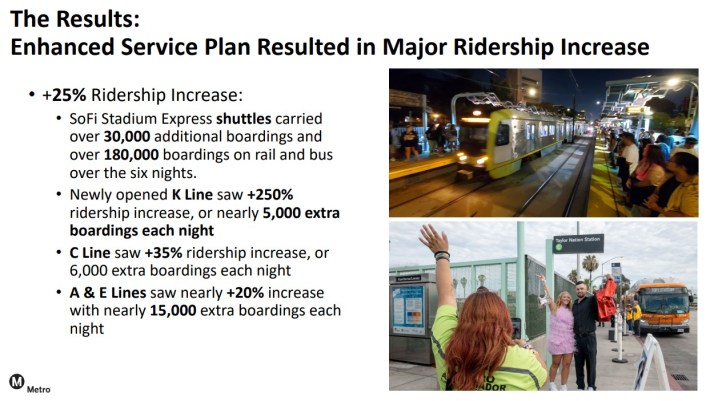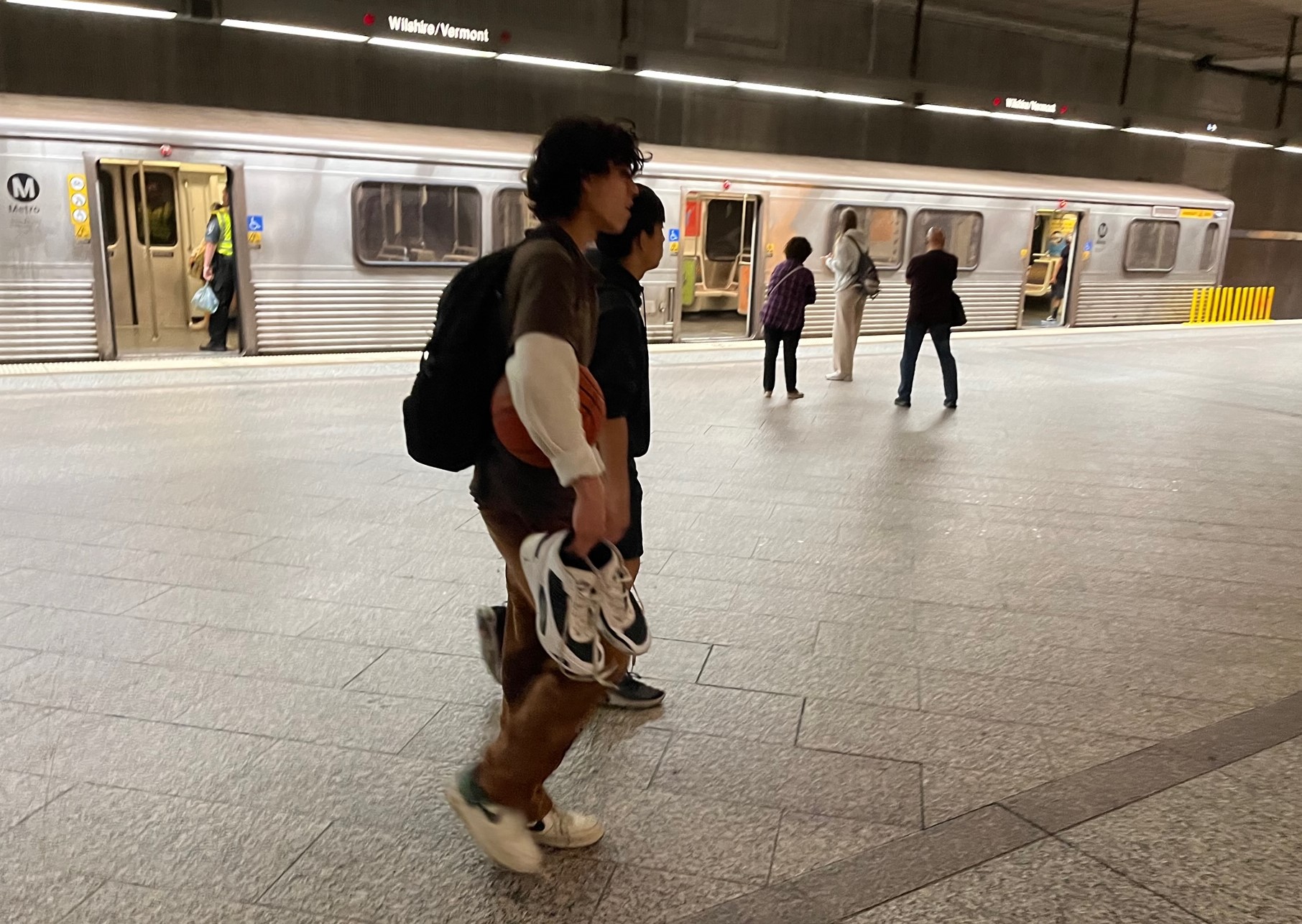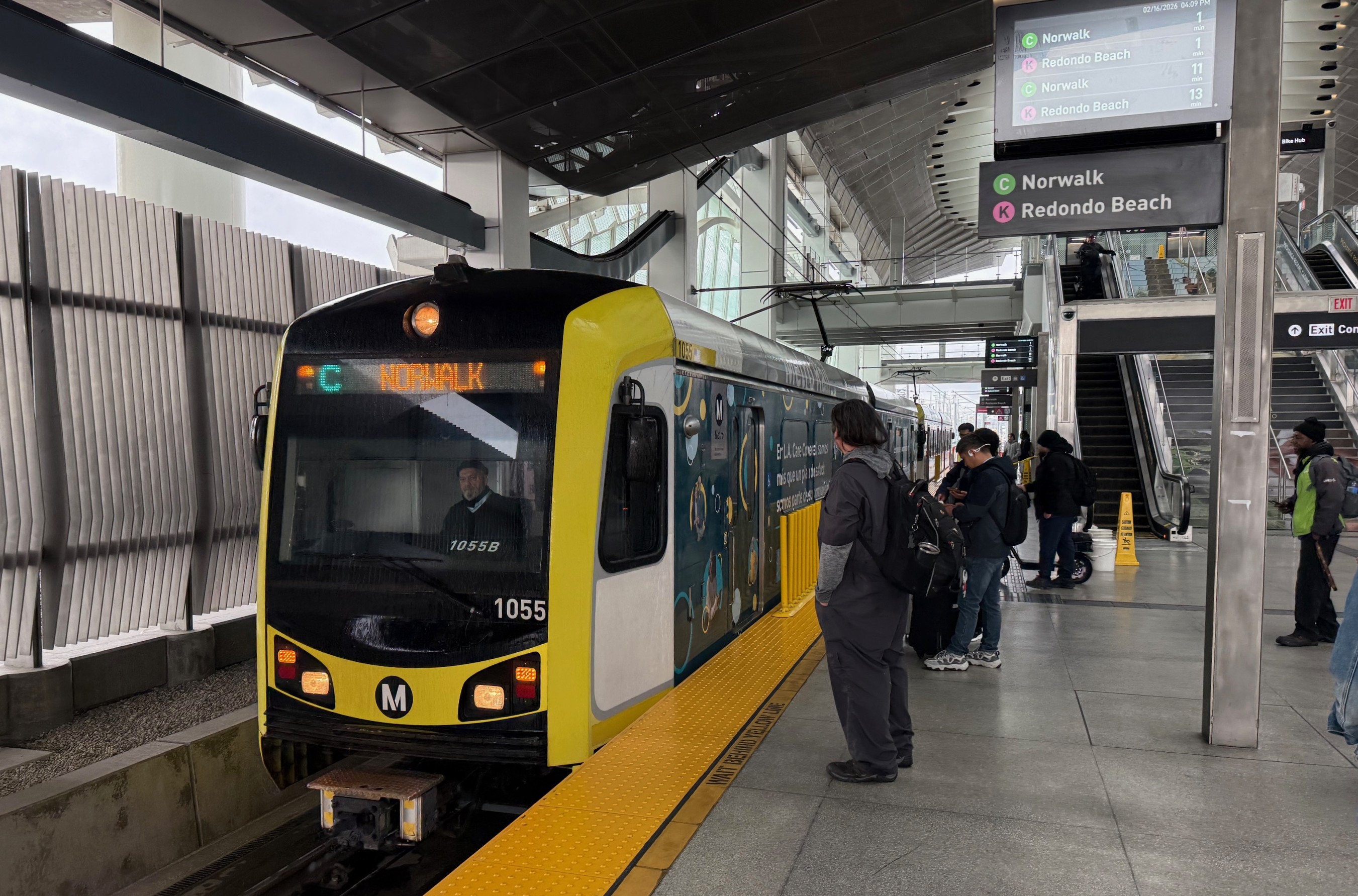Below are a few of the high and lowlights of this week's Metro board committee meetings. Further actions on these items will take place at next Thursday's full board meeting.
Metro Transit Ridership is Up
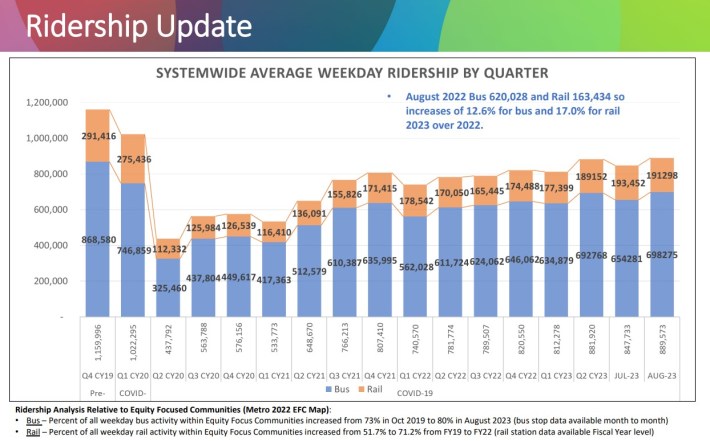
As of August, Metro ridership is at a four-year high, with nearly 900,000 weekday daily boardings. Metro bus ridership has recovered to 80.1 percent of pre-COVID levels. Rail is at 59.5 percent; overall transit is 75.6 percent (see SBLA spreadsheet).
Bus cancellations are trending downward - which is great! Weekday bus run cancelations in August were 0.5 to 1.1 percent, equivalent to the ~1 percent pre-pandemic level.
Credit the positive numbers to Metro's operator raise, bus service restoration, and the new Regional Connector. Streetsblog doesn't want to jinx it, but the upward trend should continue, with Metro restoring rail service - heavy rail (B,D Lines) this month and light rail (A,E Lines) in December.
South Bay Metro C Line Contentious
There is a showdown brewing over Metro's planned ~4-mile extension of the C (Green) Line in the South Bay. But, at least at this week's committee meetings, project support and opposition felt roughly balanced during public comment.
Watch Nick Andert's excellent eight-minute explainer video for a thorough background.
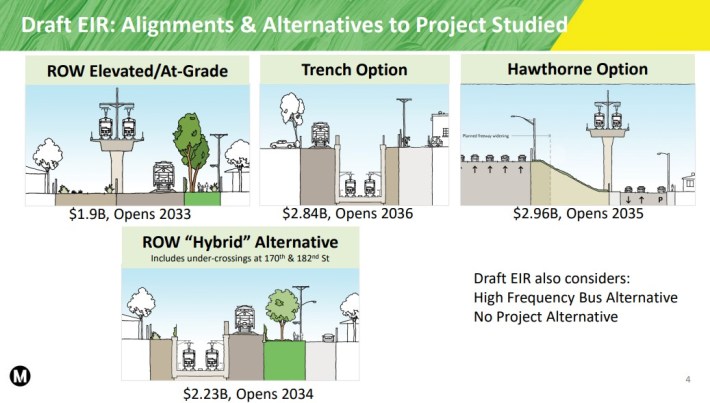
Basically, Metro owns a rail right-of-way there where many neighbors already don't like the infrequent freight trains. Some of them loudly oppose Metro trains, which they assert will bring homelessness and crime. Some just oppose the train outright while others say they want it moved over to a more expensive, less feasible alternative alignment.
Metro polling shows fairly broad support for the project. Opponents don't believe Metro's poll.
The line would connect residents of South Bay cities - Torrance, Lawndale, Redondo Beach - to LAX, job centers, and more.
There's no decision this month, but opponents are rallying to get their people to speak up at next week's board meeting, even chartering buses (ah, the irony). There will be a preferred alignment decision coming to the Metro board in a couple of months.
Updates in brief:
- Metro Law Enforcement Push to Eject Fare Evading Riders: In the monthly transit policing update, Metro law enforcement noted that they are "ejecting" non-paying riders from the system, using laws against trespassing and/or loitering. Per Metro's presentation, during a three week effort to curb "non-destination travelers" in July, there were 11,841 offloads by contract security, 84 citations issued by Transit Security Officers, and 3,875 ejections by LAPD/LASD/LBPD, with 144 arrests and 308 citations.
- Metro Micro MicroTransit Decision Postponed: Staff are asking for an additional $14 million for one more year of Metro's low-ridership high-cost MicroTransit pilot. The item [staff report] wasn't heard in committee, but postponed to next week's full board meeting.
- $65 Million For Freeway Widening: The Construction Committee approved $65 million towards widening the 91 Freeway through southeast L.A. County.
- Homeless Hub Discussed: Some Metro board and staff visited Philadelphia's transit agency SEPTA's Hub of Hope drop-in facility that offers vulnerable riders who might otherwise shelter on transit an alternative site where they can hang out, have a meal, shower, do laundry, and receive services. Supervisor Janice Hahn was enthusiastic about establishing a similar facility along Metro here. The county is investigating something somewhat similar at Union Station. See also staff presentation on Metro Homeless Outreach Management & Engagement (HOME).
- Bus Lanes Open, More on the Way: Staff presented on recent bus lanes open on Venice Boulevard and La Brea Avenue, with more coming soon on Sepulveda Boulevard, Florence Avenue, Santa Monica Boulevard, and Roscoe Boulevard.
- Lessons Learned from Recent Taylor Swift Concerts Support: Metro spent about $660,000 for transit operations, shuttles, and other measures to get Swifties to and from six recent concerts. Systemwide ridership increased 25 percent on those six concert days. Metro estimates fare recovery was about 15-20 percent, though a positive experience could help build recurring Metro riders.
